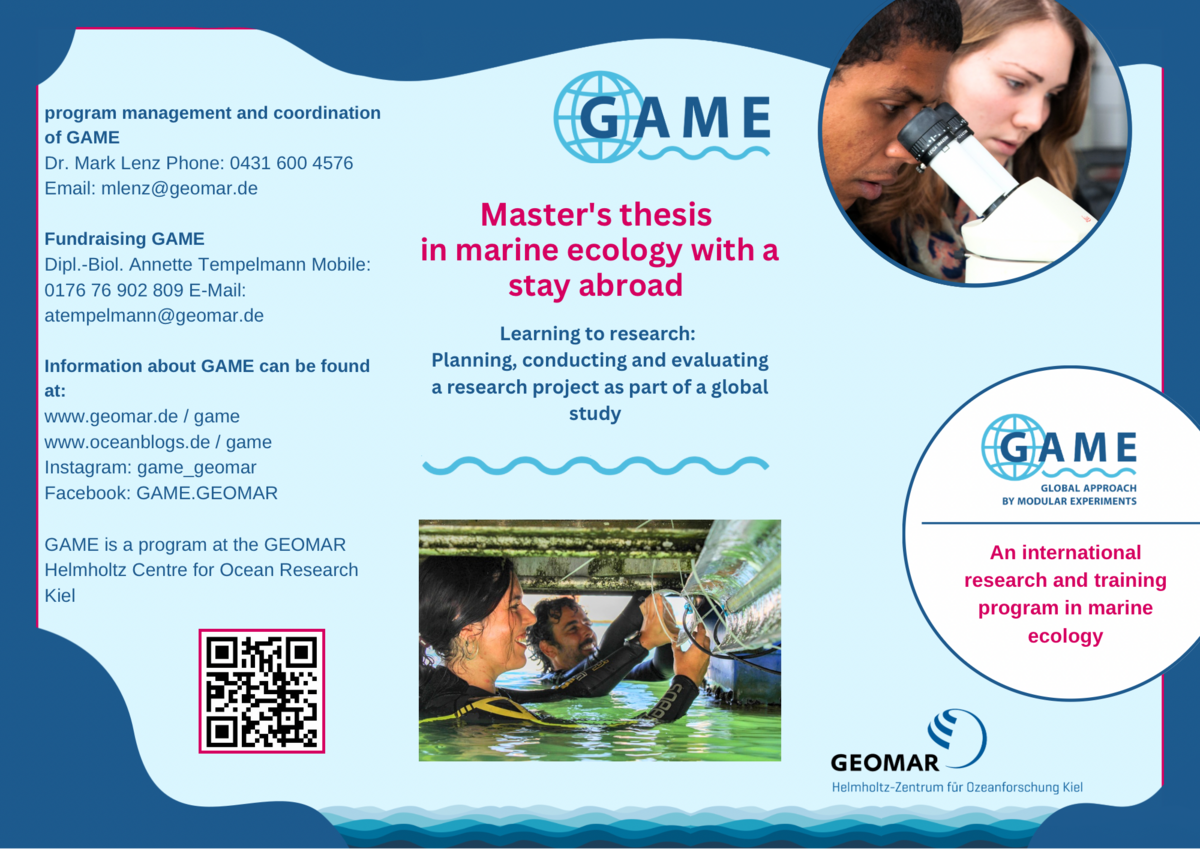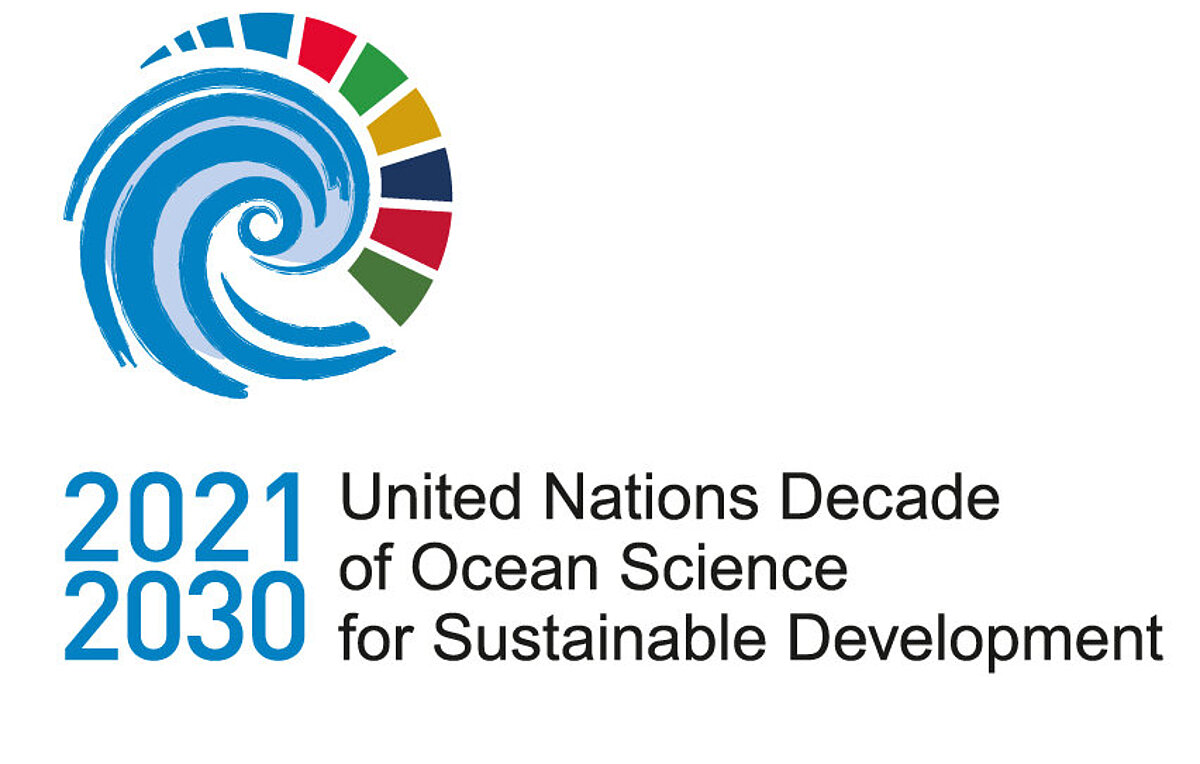Information for students
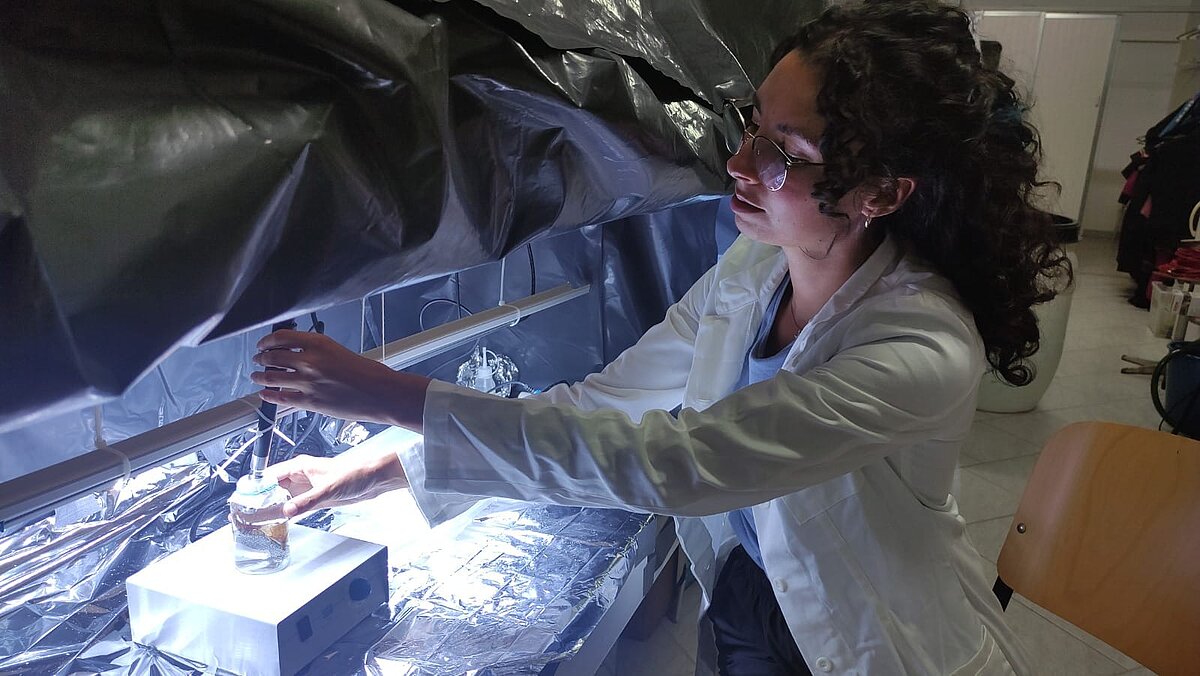
Students who would like to write their Master's thesis on a marine ecology topic can apply for a project from a year in advance (e.g. from March 2025 for the 2026 project). The research topic for the following year is announced in May of the previous year. There is no application deadline for GAME. This means that students who apply early do not have to wait long to find out whether they can take part. We schedule interviews in May, June, July and August. Once we have received an application, we will invite the applicant to the next possible date. We will then announce our decision just one week after the interview. So if you apply early, you can plan ahead. However, there are often still places available until shortly before the start of the project, which we fill if we still receive applications. With these remaining places, however, it is of course no longer possible to name a preferred location for the stay abroad. We will decide on the allocation of research sites in mid-September. This means that anyone wishing to influence which partner institute they go to must apply by the end of July.
If you are interested, simply download the application form, fill it out, attach a CV and a letter of motivation and send it to our contact address!
Participation requirements
Students from the fields of biology, ecology, environmental sciences or related studies who want to conduct a master's thesis in the field of marine ecology can participate. Enrollment at the Christian-Albrechts-Universität zu Kiel (CAU) is not necessary. The master's thesis will be registered at the home university.
For further questions about the application process please contact us directly via email: mlenz(at)geomar.de.
The topic for 2026: The influence of marine soundscapes on the colonization of hard-bottoms by invertebrates.
What GAME offers
GAME is an interesting experience for students both scientifically and culturally. The scientific focus is on preparing, conducting and evaluating an ecological experiment. This includes writing the final paper, writing a scientific publication for an international journal, and giving presentations. During the entire project, the participants are intensively supervised by the participating scientists in Germany and abroad.
GAME offers a mixture of teamwork and independent work. The two partners of a team carry out the same experiments and can thus support each other. The work is differentiated, for example, by the choice of experimental organisms. Via email, video conferences and texts, all participants of a project remain connected even during the time abroad. In this way, GAME integrates students at an early stage into a global scientific network with currently 36 partner institutes around the world. In addition to the work, there is also time to get to know the host country and its culture. For more information, see Learn more about GAME.
Time schedule of the projects
1) Preparation in Kiel: All participants of a GAME project first come to Kiel for a preparation course for one month. Here, all necessary theoretical and practical knowledge is imparted, which is required for the execution of the experiments. At the same time, all participants of this cohort get to know each other.
2) Experiments abroad: In each partner country, the local GAME participant and his or her German partner carry out an experiment lasting several months, which has been prepared in detail in Kiel. In addition, each participant may also plan and conduct additional experiments on their own.
3) Follow-up in Kiel: All students of one cycle return to Kiel to evaluate the data obtained. This phase is intensively supervised by GEOMAR scientists. It starts with a comprehensive 2-week course in biostatistics. Then the global analysis of the data and the interpretation of the patterns found takes place. The subsequent module focuses on the communication of scientific results. After teaching the necessary techniques, a presentation is developed, which the participants present at various universities in northern Germany towards the end of the project. Intensive workshops on scientific writing and media competence round off the second part of the evaluation course. Finally, manuscripts will be written and prepared for publication in scientific journals.
Excursions
Schleswig-Holstein is located between two very different seas. This is a feature that makes it a fascinating location for marine research. GAME participants get to know both ecosystems: Biological-geological excursions take them to the Baltic Sea (Schleimünde/Lotseninsel) and to the North Sea (Hallig Langeneß or Hallig Hooge).
Insight into GAME
To get a comprehensive and vivid impression of what it means to participate in one of the GAME projects, feel free to browse our project reports, read the blog posts of current and former GAME participants under Ocean Blogs, visit our Facebook page or Instagram @game_geomar.
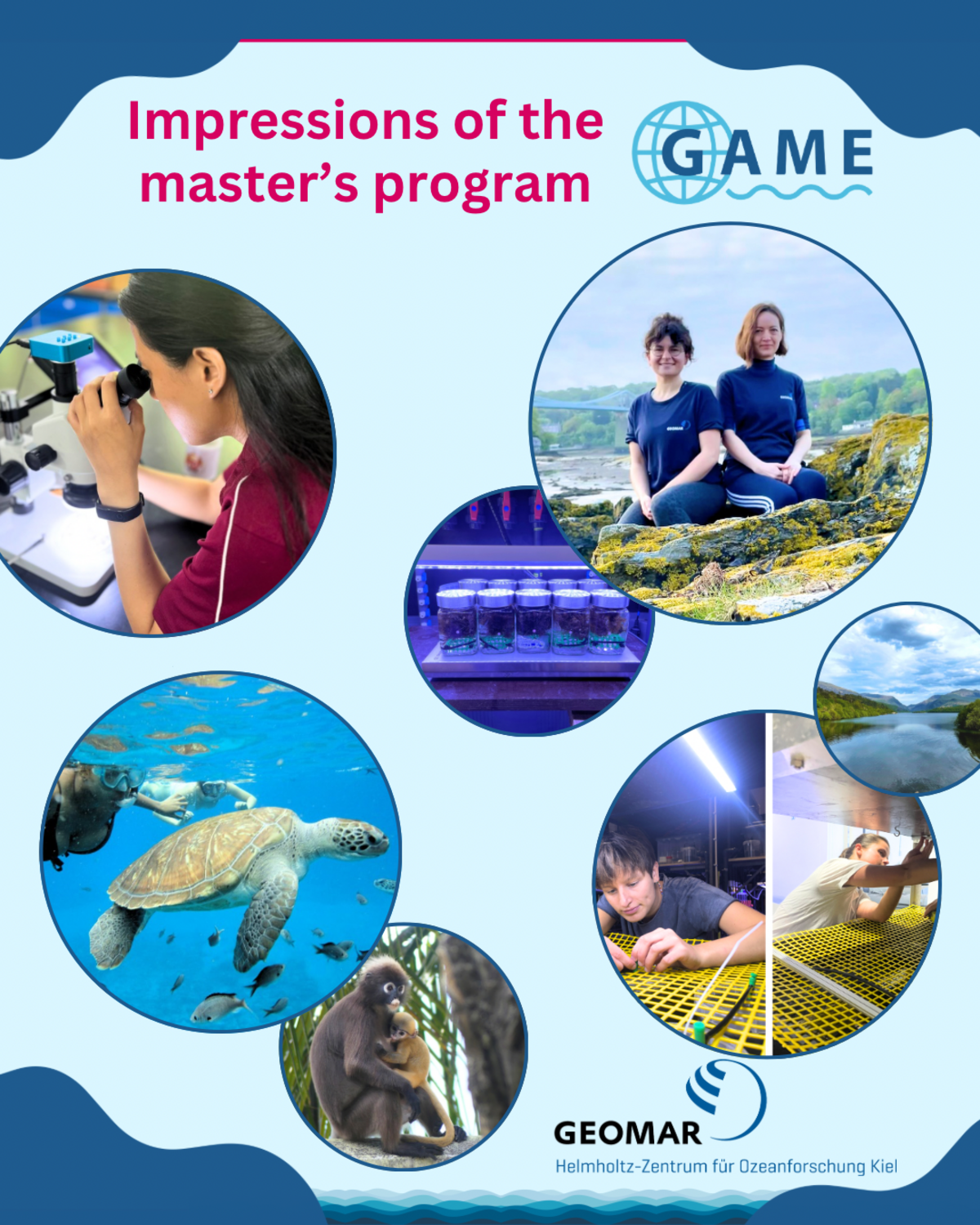
GAME students working in the lab and exploring the environment in Malaysia, Portugal (Madeira), Wales and Cape Verde.
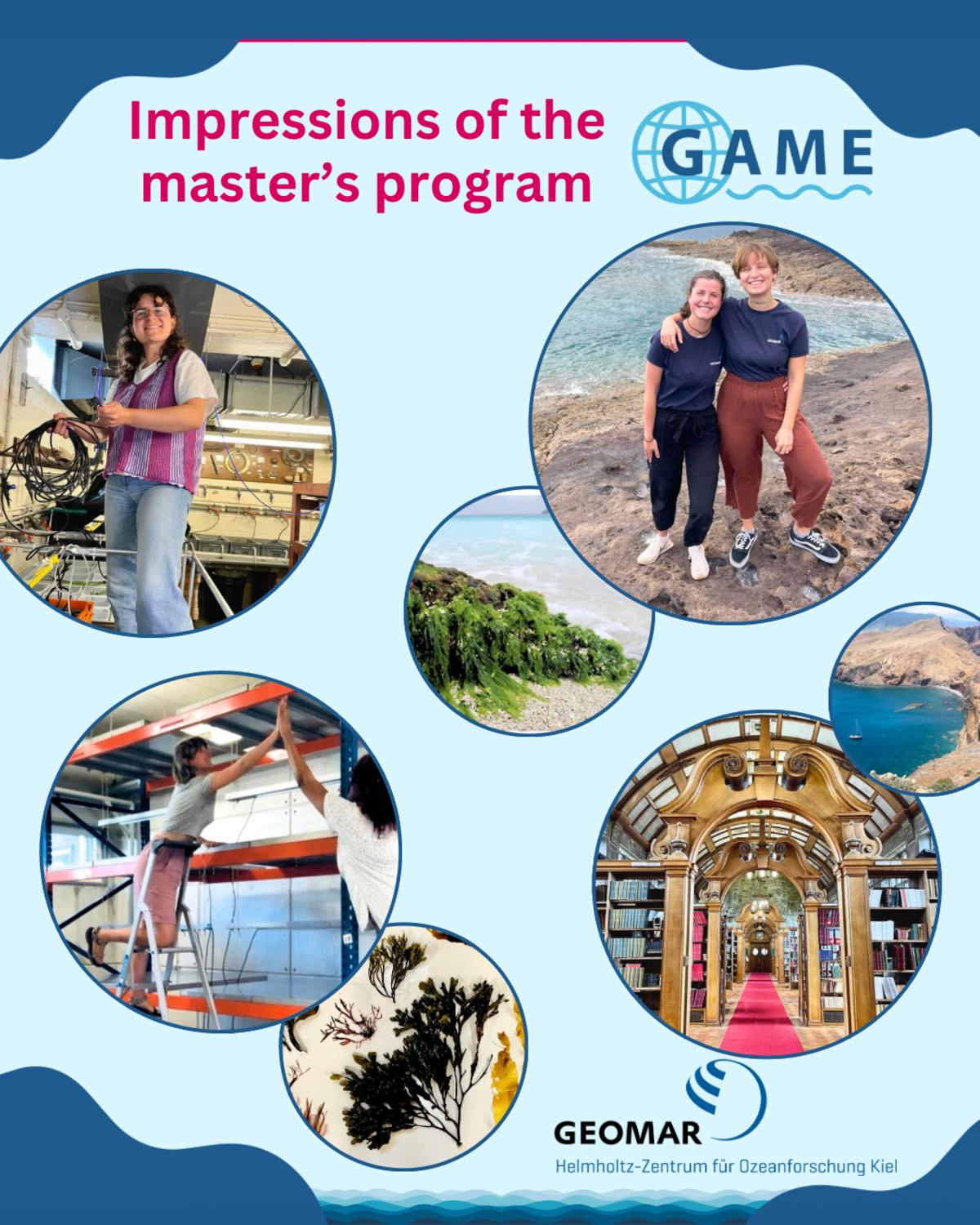
GAME students working in the lab and exploring the environment in Portugal (Madeira), Wales and Cape Verde.


